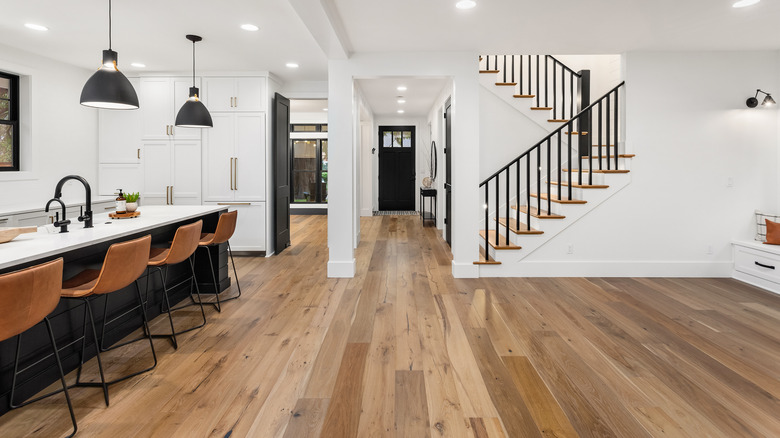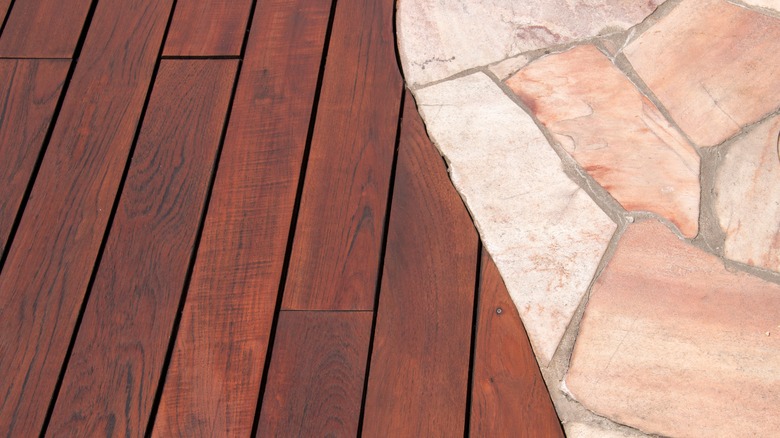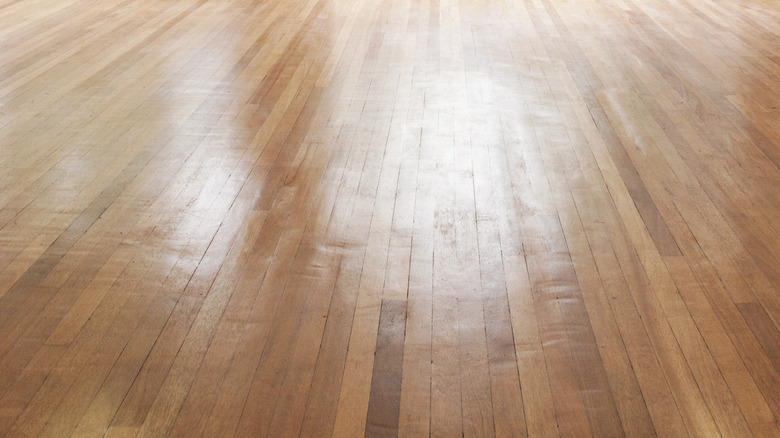The Flooring Mistake That Can Bring Bad Feng Shui To Your Home
Adding a statue on your front porch, using plants to your advantage, and decorating each room with feng shui-designated colors are quick and easy tactics for making your home superbly feng shui-ified. It's believed that the layout and design of our humble dwellings can also have a major impact on leading a successful life. It only makes sense that your home's flooring is more than just a physical structure; it's also an essential component in positive chi flow.
Like all things feng shui, it's easy to overlook something that can seem so minor. But paying attention to the small stuff, like layout, patterns, and especially, what your flooring is made of, is important. Remember that the primary goal of feng shui is to create harmony and balance throughout your space, which ultimately promotes the same synchronicity inside you. One flooring mishap can cause serious imbalances in a room's energy, which can cause discomfort, stress, and sleep disturbances, as noted by Healthline. Whether you're renovating or remodeling, in escrow, or just curious about improving the energy in your home, when it comes to feng shui, it's always a good idea to start with what's directly below your feet: the foundation.
Keep it consistent
Of course, variety is always a good thing, but this isn't the case when it comes to boosting your chi flow through proper flooring. One of the biggest feng shui faux pas you can make is to get too creative with your floor. You know, hardwood in the living room, a highly patterned Moroccan tile in the kitchen, different carpets in each bedroom, and inlay pebbles in the bathroom. While you might like being able to differentiate between the bedrooms, bathroom, kitchen, and communal living areas, your chi does not. If it's cruising through your dining room, enjoying the nice vibes that your restored 1900s wood planking is giving off, you can expect it to suddenly stop when it hits the bright white tile in your kitchen.
In feng shui, your main goal is to keep your floor as continuous as possible because continuity breeds support and stability. When each room has vastly different flooring, your house's energy begins to weaken. This mainly applies to bedrooms and communal living areas because bathrooms and kitchens, by default, need to be different.
Plan your layout
In general, planning your flooring layout is an important part of designing a cohesive and comfortable living area, and it's also essential for getting your chi moving and grooving. When it comes to your floorboards, keep in mind that they act as chi flow traffic controllers.
Essentially, whatever direction each plank faces is also where your energy is channeled. It's in your best interest to design a continuous floor throughout most of your living space. For strong and supportive chi, keeping most of your home's flooring the same is in your best interest. This means you'll also need to pay attention to hallways and window placements. And make sure that you don't combine different patterns in the same room. Your chi will get confused, stop moving, fizzle, and disappear into the aether.
When in doubt, keep it simple. In "Feng Shui In A Weekend: Transform Your Life and Home in a Weekend or Less," author Simon Brown explains that wood and stone or marble are neutral regarding chi and are, therefore, your best bet for a suitable feng shui flooring experience. Engineered wood paneling is also more financially friendly than hard or softwood flooring.


